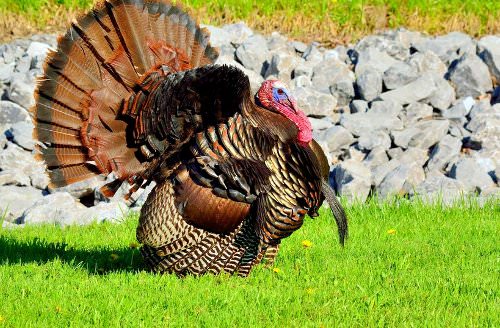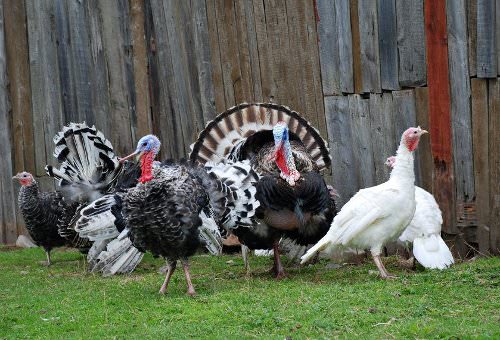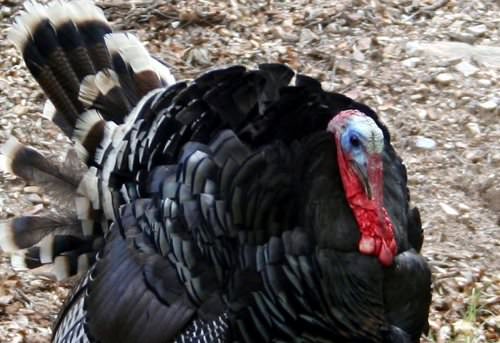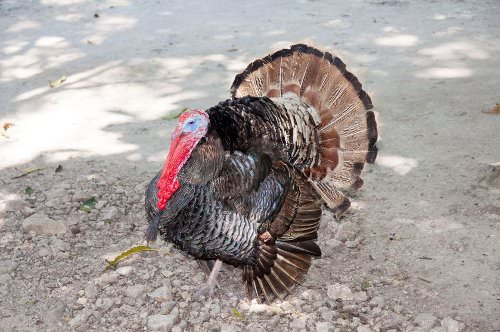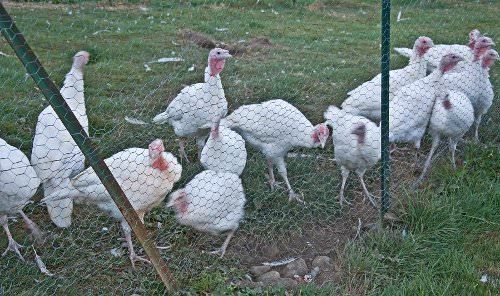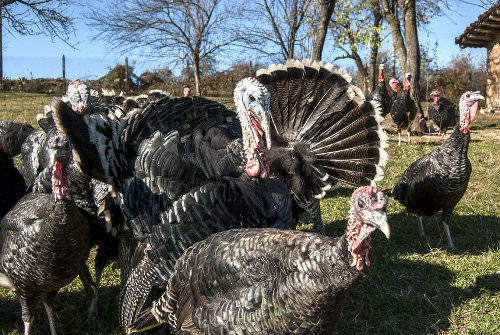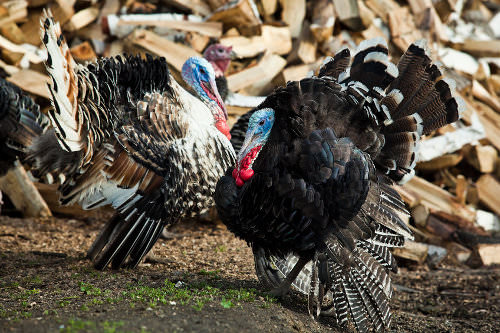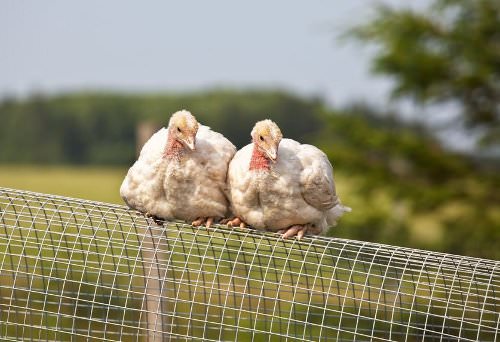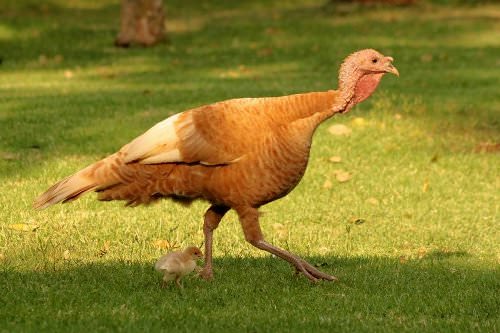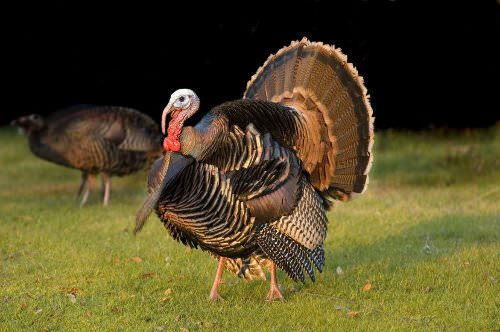While turkeys are best known for the role they play as the main course in Thanksgiving dinners, they have been involved in human life in another way for centuries – as affectionate domestic pets. When Abraham Lincoln was president, his pet turkey was a familiar sight on the lawns of the White House.
A turkey is a great choice of pet. These are impressive looking birds with very interesting, regal-looking plumage. A male turkey strutting about your yard putting its plumage on full display can be a regal sight.
While a turkey hen may not have the plumage of the male, it gives something that you can use – eggs. Turkey eggs are an excellent substitute for chicken eggs. Perhaps the best reason to raise a turkey is that these intelligent birds tend to be very affectionate pets. What does raising turkeys as pets involve, though? Here are a few tips.
1. Garden
While you don’t need to live in the White House to raise a turkey, you do need a garden. Turkeys are large birds that aren’t happy indoors. They can be very unhappy when they are confined to small spaces.
You’ll need a yard (a patch of land that’s 10 feet on each side should be adequate) with fences that are at least 7 feet tall. Turkeys can easily jump over anything shorter. If you’re raising two turkeys, you’ll need about 50% more space.
While turkeys are outdoor birds, they need shelter from the rain or extreme weather, too. You need to build a small shelter, line the floor with wood shavings and bring in heat lamps for heat in winter. Wood shavings are better than wood because cleaning your turkey’s droppings up will merely involve sweeping up the wood shavings and scattering new shavings around.
2. Feeding your pet turkey
Turkeys are happy to eat just about anything that you give them.
Families raising turkeys usually use them as a convenient disposal for anything left over in the fridge that no one wants to eat.
Willing to eat anything from vegetable peels to overripe fruits, turkeys are very low maintenance. Their main diet, though, should be turkey mash and poultry pellets. You can get these from any store that sells poultry supplies.
3. Turkeys are always happy for a few special treats
Turkeys don’t just eat plant-based foods. They consider bugs and insects to be special treats. While you’ll find them foraging around in your yard for tasty insects, you should keep a supply from the pet store to give to your turkey from time to time.
These treats can be a great way to build a relationship.
4. You need to take care of your turkey’s health
Chickens are usually carriers of protozoa. They aren’t affected by them, though. Turkeys, on the other hand, can develop a serious liver disease called blackhead disease when exposed to protozoa.
A turkey’s head can take on a bright bluish tint when it has this disease.
The best way to keep a turkey free of protozoa caused diseases is to keep it away from other poultry. If you are raising chickens, they should be in a separate enclosure that’s built several feet away from your turkeys.
5. Don’t let your pet turkey roam free around your garden
Turkeys love anything green and colorful and try to eat everything that they set their eyes on. A turkey let loose in a planted garden for a few minutes can reduce it to a compost heap.
You will need to have arrangements in place to keep your pet turkey away from your garden.
6. You may need a permit to raise a turkey
In some districts, local regulations see turkeys not as pets but as farm animals. You may need to obtain a special big bird permit from the Department of Agriculture.
7. Getting turkey chicks is a better idea than getting grown turkeys
While grown turkeys do easily get along with humans, turkeys raised as chicks can form a real bond with them. If you do decide to get chicks, you should get two – a male and female. They can even be raised indoors until six weeks of age. Once past this age, though, you will need to get them in an outdoor space.
They are usually happy picking around their space on their own as long as you keep it reasonably well heated with a heat lamp or two. Once your chicks are fully feathered, they won’t need much protection from the cold.
8. Feeding little turkey chicks
Turkey chicks can be helpless creatures. While they don’t need any special food, they need to be fed. They can starve to death sitting 3 inches from a bowl of feed if you don’t show them exactly where it is.
You need to spend several days showing them exactly where the feed is. As long as you don’t move their feed bowl, they’ll learn where to go for it after a while.
9. Make sure that you don’t have other pets around the house
Whether you’re raising turkeys or turkey chicks, it’s important that you don’t have any of your natural predators around. Cats and dogs are bad idea if you’re planning on raising turkeys.
Turkeys are popular as pets these days. You need to consider one thing, though – when you have a turkey as a pet, you no longer relish turkey for Thanksgiving. Are you going to raise turkeys as pets?

